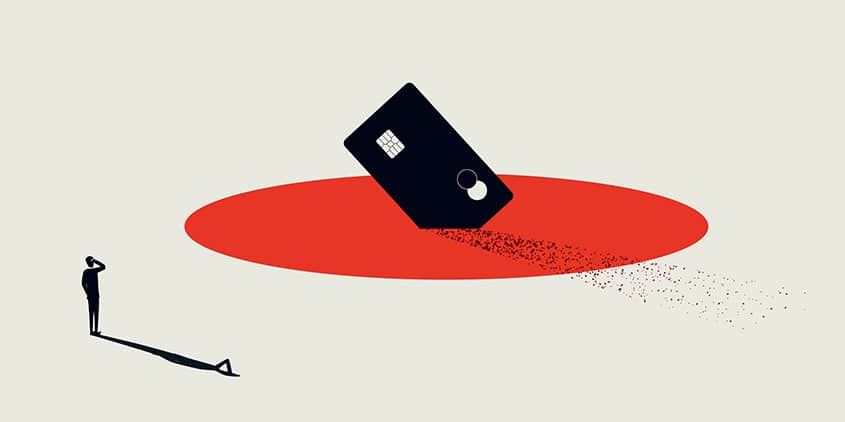Breaking up is never easy, particularly when it comes to the untangling of joint finances. While both parties’ initial focus might be on splitting assets, figuring out what happens with debts and other obligations, such as mortgages and unpaid taxes, is just as important.
So if your soon-to-be ex-partner has a heap of credit card debt in their name, you might be wondering: Will I be responsible for my spouse’s debt in a property settlement?
No two family law cases are identical, so, as always, the answer depends on the specific circumstances of your case, but the following are some broad guidelines as to the possible approaches.
What if the debt is not ‘yours’?
Relationships are often looked upon as a roller coaster – partners share the ‘ups’ and ‘downs’ together. This usually means that, if there are windfalls, such as a capital gain in a joint investment, they are shared, and if there are liabilities, such as investment losses, they too are shared.
This means that it might not matter in whose name the debt stands. When a couple separates or divorces, their property and assets are in most cases considered as part of a ‘pool’ of property which is then divisible between them – this is the case, howsoever the assets are actually held (whether jointly, or by one party alone).
Debts are usually considered in the same way – they form part of the property pool when a couple separates or divorces, regardless of which party is the borrower or the party legally responsible for that debt.
But, while debts are included in a property pool, the sharing of that debt is not necessarily ‘equal’ – it falls to a Judge to determine how contributions to windfalls should be assessed. And so it is the same with debts – a Court can order that the debt be shared equally, that it be shared but in unequal shares, or that one party alone be left to pay it.
So what might apply in your case?
What is the debt for?
The first thing to do is to look at how the credit card debt is comprised. Is it for core living expenses of your relationship or your family – the groceries, pharmacy costs, transport costs such as fuel and registration, insurance premiums and clothing?
If so, it is likely that this will be seen as having been for the benefit of the family, and as having been directly or indirectly enjoyed by both parties in the relationship, and therefore be treated as a debt to be shared equally between partners.
If, however, it has the character of being one party’s discretionary expenditure – a holiday taken by them alone, or significant discretionary purchases such as jewellery, expensive clothing, or hobby items – that party alone might be required to take on that debt themselves (noting that they would also be retaining the items purchased on credit).
Take the following illustration – a credit card account stands in the name of your partner, but that card (including, perhaps, a supplementary card used by you) was used for all family expenditures. In that situation, even though the debt does not stand in your name, it will still form part of your asset pool (as a liability), and likely be shared equally between you.
If, however, all of the charges were for online gambling, unbeknown to you, and in circumstances where you had already forbidden any spending on gambling, then the debt which has been accrued might be assessed as being payable by your spouse alone (or that your spouse pays the greater share of it).
Seek legal advice
If you are concerned about how credit card debt will be dealt with in your property settlement, it’s a good idea to seek legal advice from an expert family lawyer.
A lawyer can guide you through the property settlement process and make sure your rights and interests are protected.
Contact BGM Family Law
BGM Family Lawyers is a family law firm serving the Gold Coast. We’ve helped many couples navigate separation and we can help you too.
Get in touch by emailing [email protected] or calling 1300 BGM LAW.


